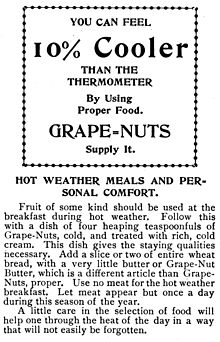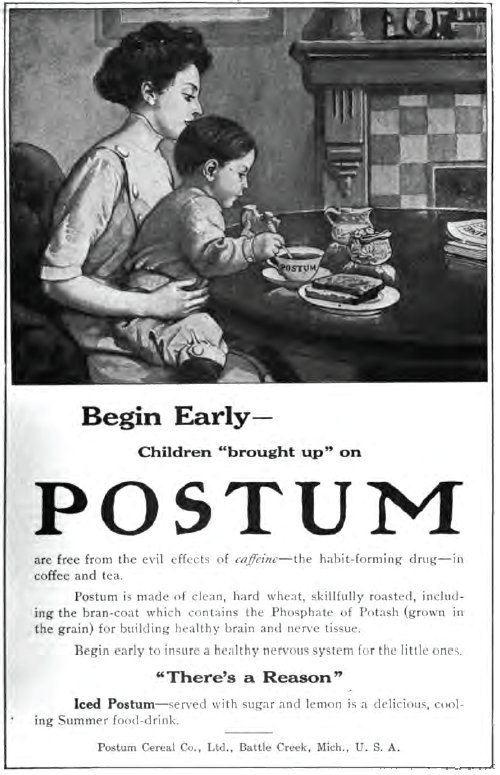I generally like Justin Fox, but in this
Bloomberg piece, he's working really hard to avoid the obvious conclusion.
On
Monday, software engineer Rob Rhinehart published an account of his new
life without alternating electrical current -- which he has undertaken
because generating that current "produces 32 percent of all greenhouse
gases, more than any other economic sector." Connection to the power
grid isn’t all Rhinehart has given up. He also doesn’t drive, wash his
clothes (or hire anyone else to wash them) or cook anything but coffee
and tea. But he still lives in a big city (Los Angeles) and is chief
executive officer of a corporation with $21.5 million in venture capital
funding.
That corporation is Rosa Labs, the maker of
Soylent, a “macronutritious food beverage” designed to free its buyers
from the drudgery of shopping, cooking and chewing. In the 2,900-word
post on his personal blog, Rhinehart worked in an extended testimonial
for Soylent 2.0, a new, improved version of the drink -- algae and soy
seem to be the two most important ingredients -- that will begin
shipping in October.
“Macronutritious” is a bit of a stretch. Soylent is not all that nutrient dense (make sure to note the calories).
The following summarizes the nutrition facts and ingredients for Soylent 1.5.
[35] The nutrition facts are based on one serving of 115 grams (4.1 oz).
[35] Each Soylent pouch contains four servings.
Soylent 1.5 Nutrition Facts
| Serving Size 115g | Servings per Container: 4 |
| Calories | 500 |
| Calories from fat | 200 |
| Amount per Serving | % Daily Value* |
|---|
| Total Fat | 23g | 35% |
| Saturated Fat | 2.5g | 13% |
| Trans Fat | 0g | N/A |
| Cholesterol | 0 mg | 0% |
| Sodium | 360 mg | 16% |
| Potassium | 866 mg | 25% |
| Total Carbohydrate | 57g | 19% |
| Dietary Fiber | 3g | 12% |
| Sugars | 15g |
|
| Protein | 20g |
For less than a fourth of those calories, here's what you get with a bowl of black beans.
I'd also recommend adding some nonfat Greek yogurt to your spicy bean soup as a sour cream substitute
Nor
do you have to cook to do better than Soylent. I did a quick check at
the grocery store last night and I found lots of frozen entrees that
gave you more nutrition for less calories than Rosa Lab's product.
Basically,
when you cut through all of the pseudo science and buzzwords and
LOOKATME antics, Rhinehart is simply peddling a mediocre protein shake
with the same tired miracle food claims that marketers have been using
since
John Harvey Kellogg gave
C.W. Post his first enema.
Here's what happens when
actual scientists look at these claims:
Susan
Roberts, Professor at Tufts University's Friedman School of Nutrition
Science and Policy, likened Soylent to already available nutritional
shakes. While there might be some benefit to Soylent's low saturated fat
content, she said, there are certain risks inherent in a non-food diet.
"[T]here are so many unknown chemicals in fruits and vegetables that
they will not be able to duplicate in a formula exactly," she said in an
email. She says that, if Soylent is formulated properly, a person could
certainly live on it, but she doubts they would experience optimal
health. She fears that in the long-term, a food-free diet could open a
person up to chronic health issues.
Tracy Anthony,
Associate Professor of Nutritional Sciences at Rutgers University,
speaking to us in an email, criticized the formula specifically:
[T]he fast-digesting soluble protein source (whey) in combination with
the simple sugar source (maltodextrin) creates a product that is very
high glycemic. This product would not promote healthy glucose control,
satiety and cognitive well-being with insulin spiking at each point of
Soylent consumption.
She also echoed Roberts'
sentiment, that ingesting the minimum nutrition required by the human
body is not the same thing as maintaining a healthy diet. Could a person
live off of Soylent for a while? Certainly, she says, for quite a
while; but that doesn't mean that they are taking in the nutrients
necessary to prevent disease, manage disease, or live a long life.
Fox
seems to imply that being "chief executive officer of a corporation
with $21.5 million in venture capital funding" undercuts the impression
of flakiness, but wouldn't it make more sense to flip that around and
ask what the flakiness says about the state of venture capital.
There
is no reason to believe that Rob Rhinehart is anything more than a
snake oil salesman with a propensity for idiotic babbling or that
Soylent is anything more than a crappy protein shake dressed up with bad
science and a standard miracle-food spiel. The fact that someone gave
this guy a twenty million does not reflect well on the judgement of VC
firms, but in their defense, the company that
issued that check
was Andreessen Horowitz, and no company co-foundedd by Marc
Andreessen can be considered representative when it comes to flakiness.












